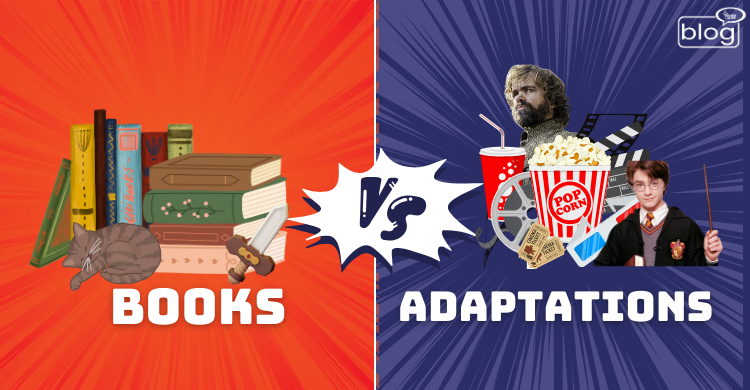This debate has been kept alive for many decades, and rightly so, because books are such a personal thing, while adaptations can give life to the story in ways that make it possible for more people to get engaged with them. In relation to which one takes precedence, it’s proper to delve into the various strengths and weaknesses of the two.
Books are considered the superior medium for a number of reasons. They are a framework upon which the reader’s imagination works. Books do not simply show a picture of a castle on a hill or of wizards dueling; they allow the reader to form those pictures in their mind’s eye. A book is personal in that each reader reads into the characters, events, and settings; besides this, they can go as deep as they want. Other than that, authors may spend hundreds of pages developing characters, backstories, and subplots- such luxuries are sacrificed in adaptations too often because of time. Take, for example, The Great Gatsby by F. Scott Fitzgerald’s novel weaves longing and ambition, decadence with some of the most beautiful prose ever written. As brilliant as Baz Luhrmann’s 2013 version was in conveying the jazz-age parties, as mesmerizing as Leonardo DiCaprio was in his version of Gatsby, neither really nailed the emotional feel of the novel. Lines like, “So we beat on, boats against the current…” sink deeper inside the heart when read from a book in the silent closeness of paper and ink.
On the other hand, adaptations carry their own beauty. They aren’t an easy translation of books into movie form- they are reconceptualization’s where story, music, cinematography, and acting come together. A great adaptation provides a new dimension to the story. Peter Jackson’s The Lord of the Rings trilogy is an epic from Tolkien brought to life with fabulous visuals, an evocative musical score by Howard Shore, and great acting from the cast. It whisked audiences away to Middle-earth with a tangibility of immediacy; it was riveting. Adaptations do fantastically well in terms of accessibility: not everyone has the time or inclination to read a long novel, but most people can set aside a couple of hours for a movie. Indeed, the movies based on The Hunger Games brought Suzanne Collins’ dystopian world to millions who might have never picked up the books. In the case of most series and films, these adaptations have almost worked like a gateway to encourage viewers to research the source material once the adaptation is over. A great example of this is how the readership for George R.R. Martin’s A Song of Ice and Fire series began immediately after the premiere of Game of Thrones on HBO. Adaptations do come with their own set of downsides. Where some, such as Pride and Prejudice 2005, remain true to and even uplift the source material, others do not. Poor adaptations make complex characters caricatures and reduce intricate plots. Examples include Percy Jackson & The Olympians: The Lightning Thief, which did not impress the fans since it deviated too much from Rick Riordan’s favorite series of books. But one wrong step in this adaptation can distance fans from the original work and the impact of the story.
When done well, it should complement and not outdo the source material of its adaptation. Books and their adaptations are two sides to being part of the experience of a story. In contrast, books invite readers into a reflective inner journey inside the story; it is shared in views, performances, and music concerning adaptations. Together, this creates a rich landscape in storytelling.
After all, it boils down to a preference between books and adaptation; it’s all about the flavor one tastes in reading detailed fiction versus watching the same story graphically told. In fact, one needn’t weigh between the two; both exist unanimously as alternative ways of narrating the same story.
Both are a mediums rejoicing in the art of telling a story. Be it ink on paper or pixels on the screen, a great story can be equally captivating and inspiring. Rather than compare which is better, one should appreciate what each uniquely brings into the world for storytelling, whether that be in the form of a book or its adaptation.
To read more blogs like this, click here
Writer
Mridula Mozid
Intern, Content Writing Department
YSSE

